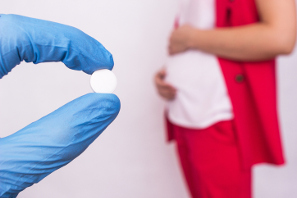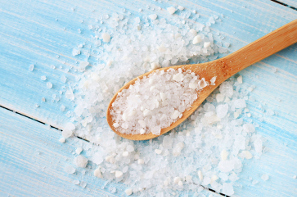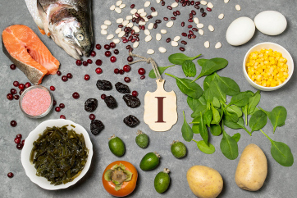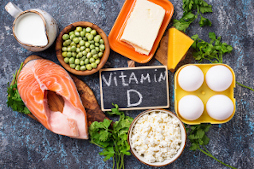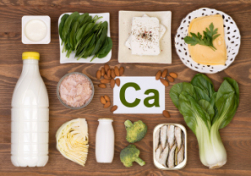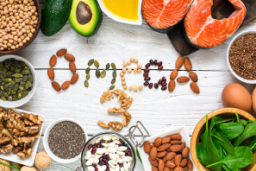Iodine: learn why this is a key nutrient during your pregnancy
Crucial for thyroid hormone synthesis
Nutritional iodine deficiency is now the most common cause of preventable intellectual disability worldwide. Pregnant and lactating women and children under two years of age are particularly vulnerable to iodine deficiency, according to WHO.
Thyroid hormones depend on iodine to function properly
Iodine is a micronutrient whose biological importance lies in the fact that it is essential for the synthesis of thyroid hormones, since both thyroxine (T4) and tri-iodine-thyronine (T3) have 4 and 3 atoms of iodine in their molecules, respectively. Therefore, all the functions carried out by the thyroid hormones depend very closely on the nutritional status of the iodine.
According to the World Health Organization (WHO), the groups most vulnerable to iodine deficiency are pregnant or breastfeeding women and children under two years of age.
During the first half of the pregnancy, the mother must supply the foetus with thyroid hormones, as the foetal thyroid does not start functioning until 18-20 weeks of pregnancy.
How does iodine help foetal development?
At the same time, the mother must provide the foetus with iodine to enable it to carry out all normal processes of growth and development, particularly neurological development, with the branching of dendrites and axonal growth, synapse formation and neuronal migration. Today, nutritional iodine deficiency is the most common cause of preventable intellectual disability worldwide.
The WHO-recommended iodine supplement dosage is 250 μg/day during pregnancy and lactation.
It has been estimated that a daily iodine intake above 500 μg does not have any benefits in the foetus.
Always use iodised salt
- Iodised salt consumption is the most effective way of providing supplementary iodine.
- Iodised salt in Spain contains 60 mg of iodine per kg of salt, which means that by taking about 3-4 grams of salt per day you can meet your daily iodine needs, without exceeding the daily maximum amount of salt recommended by the WHO (<5 g/day).
- In Spain, less than 90% of households consume iodised salt, so its use should be encouraged and pharmacological supplementation with potassium iodide should be carried out in population groups that are most vulnerable, such as pregnant and breastfeeding women.
Iodine-rich foods: dairy products, fish and iodised salt
During your preconception and prenatal visits, your doctor should recommend the intake of iodine-rich foods, primarily dairy products and fish, and encourage you to use iodised salt during pregnancy and breastfeeding.
It is estimated that in order to reach the recommended daily dose requirements (250 micrograms/day) a pregnant woman should consume three daily servings of milk or dairy products and two grams of iodised salt.
Iodine cannot be stored in the body so it must be ingested daily. Iodine plays a fundamental role in the functioning of all organs, but especially the brain.
The human brain develops during prenatal and early childhood, so an iodine deficiency, especially in the first half of your pregnancy, can have an irreversible impact on your baby's neurological development.






